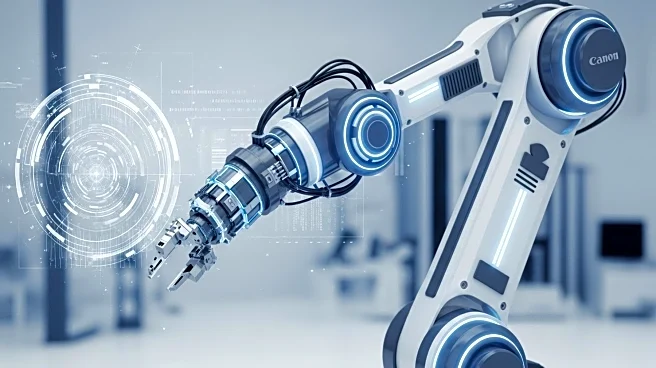What's Happening?
Researchers at the Graduate School of Artificial Intelligence at UNIST have introduced a novel meta-reinforcement learning technique called Task-Aware Virtual Training (TAVT). This approach enables AI agents to generate and learn from virtual tasks, enhancing their ability to adapt to unforeseen challenges. The technique involves a dual-module system comprising a deep learning-based representation component and a generation module. The representation module assesses task similarities, creating a latent space that captures essential features, while the generation module synthesizes new virtual tasks. This process allows AI to pre-experience situations it has yet to encounter, boosting readiness for out-of-distribution tasks. The research was presented at the International Conference on Machine Learning (ICML 2025) and tested across various robotic simulations, demonstrating significant improvements in adaptability and stability.
Why It's Important?
The development of TAVT represents a significant advancement in AI technology, particularly in the field of robotics. By enabling robots to anticipate and prepare for unfamiliar tasks, this technique enhances their flexibility and resilience in dynamic environments. This is crucial for applications such as autonomous vehicles, drones, and physical robots operating in unpredictable settings. The ability to generalize across diverse tasks can lead to more efficient and reliable AI systems, potentially transforming industries that rely on automation and robotics. As AI continues to evolve, techniques like TAVT may play a pivotal role in bridging the gap between simulation and real-world deployment, driving innovation and economic growth.
What's Next?
Following the successful presentation at ICML 2025, the research team may focus on further refining the TAVT technique and exploring its applications in various sectors. Collaborations with industry partners could facilitate the integration of this technology into commercial products, enhancing the capabilities of AI-powered systems. Additionally, ongoing research may address challenges related to data representation and task generation, ensuring that AI models can effectively adapt to a wide range of scenarios. As the technology matures, stakeholders will likely monitor its impact on the robotics industry and its potential to drive advancements in AI-driven automation.









